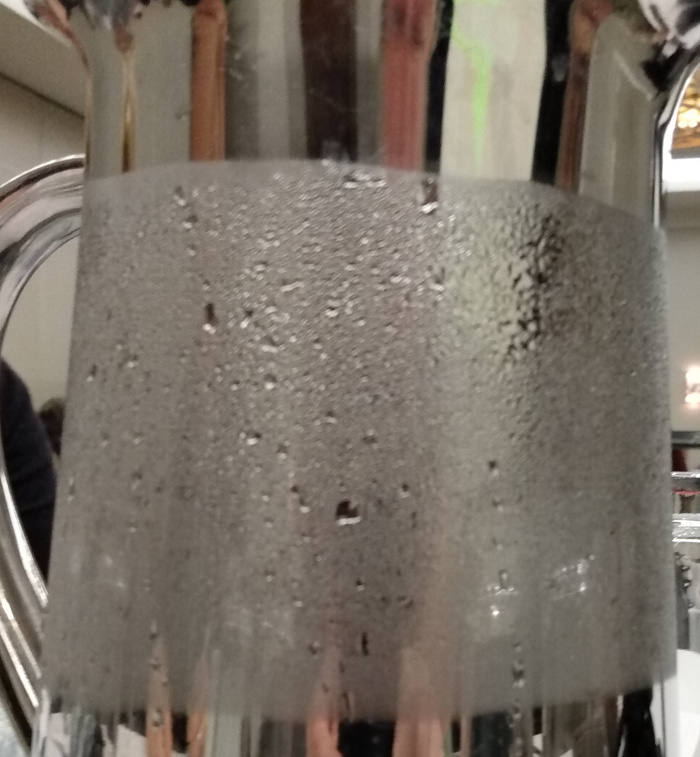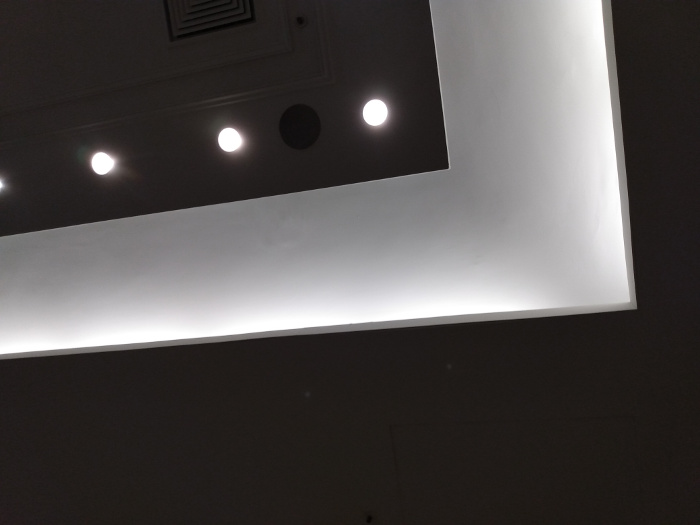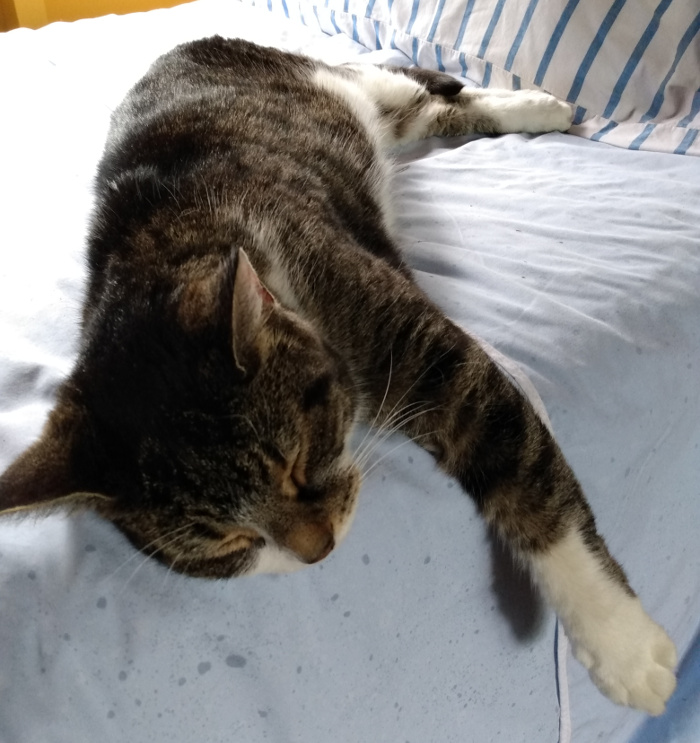I’m on my way home from Ottawa where I was at a conference run by the Canadian Association of University Teachers (CAUT), which is made up of faculty associations and unions across the country. Individuals aren’t members, organizations are. I’m a member of the York University Faculty Association (YUFA), which is a member of CAUT. YUFA paid my way (and Patti Ryan’s), and so I need to write up a report, which I’m doing while everything is fresh in my mind. I’m rolling through Ontario on a train while listening to Philip Glass’s Music in Twelve Parts. Ideal! Please forgive any oversights or infelicitous phrasings.
The conference was set up by the Librarians’ and Archivists’ Committee, which I was on for a three-year term that expired in the spring. I really enjoyed it. It was fascinating to learn how different things are for librarians and archivists across the country. The others on the committee were a really fine bunch of people! I learned a lot, and was happy to be part of writing the bargaining advisory that came out earlier this year. Also, everyone I met who works at CAUT was absolutely top notch. There are real experts there.
I encourage all academic librarians and archivists in Canada who are at institutions that are CAUT members to get involved with it—not necessarily on the L&A committee, you can go for the academic freedom committee, or any of the others. The conferences are open to everyone, and well worth attending. Ask your association or union to pay your way! Join their mailing lists (through your local association).
The theme was “Navigating the Reorganization.” There’s a trend across the country now for academic libraries to reorganize and set up new organizational structures and reporting lines. (It’s happening where I work, at York University Libraries, as described here. We’ve spent about three years on it and we’re not finished yet. This is not uncommon.)

Reorgs
There are various reasons why this is happening. One, I think, is that all the universities set up in the 1960s had much the same structure and approach to work: a “liaison” model, where there’s a history librarian, a psychology librarian, a business librarian, etc., and they each do everything for that subject: reference and research support, instruction in class, relations with faculty, collection development, etc. There would also be some cataloguers and some archivists. This model grew over the years but then became paralyzed with the increasing attention to digital methods and scholarship. In that structure you might have a committee for scholarly communications, but it’s not anyone’s real job, so little gets done. And if you hire an expert on research data management or open educational resources (OERs), there’s no proper home for them, so anyone hired will have a very hard time of it. (See Dorothea Salo’s astonishing masterpiece How to Scuttle a Scholarly Communication Initiative (Journal of Librarianship and Scholarly Communication, 2013) for a demolition of this and more.)
The new structures generally put people into “functional” roles, where they have jobs focused on OERS, scholarly publishing, collection development, information literacy, open access, etc. The subject expertise and liaison work is now secondary. That’s a problem, certainly, but the new model does mean the library can devote real resources—people and time—to open access, open scholarship, digital preservation, and so on. If we’re going to change how scholarly publishing works and build national infrastructure so that all publicly-funded research is freely available to everyone without privately-owned publishing companies making extortionate profits off our free labour, you can’t do that by going to a committee meeting twice a month.
Another reason is that universities are now being run like businesses. Everything you’re heard about corporatization of higher education, rampant managerialism, administrative bloat, and neoliberalism (where everything is valued only by money) is true. Also, administrators all talk to each other, so when one place restructures and gets a new associate university librarian (AUL), another university librarian (UL, sometimes called the Dean of Libraries) thinks, “Hey, that looks great. If we restructure, not only can we finally get on with all that digital stuff, I’ll have a big accomplishment to tell the provost, and I can get a new AUL.” (Or possibly they flip the order.) So they hire consultants—administrators love to hire consultants—and arrange some town halls and world cafés and get started.
Here’s the description of the conference:
Academic libraries and archives across Canada are facing reorganization and restructuring. These initiatives can threaten the positions and work of librarians and archivists, and undermine traditions of collegial governance. The 2019 CAUT Librarians’ & Archivists’ Conference will investigate and discuss this reality. Participants and panelists will examine how librarians and archivists, individually and together with their academic staff associations and CAUT, can resist the devaluation, deskilling and reassignment of traditional work, and ensure a strong place in new organizational models for the core values of community service, openness, collegial governance, and social justice. Please join your peers from across Canada at this bilingual event.
Savage and Hornick
The opening and closing keynotes were fantastic. Larry Savage, a professor of labour studies at Brock (he’s Dr. Savage or Prof. Savage, but not Doc Savage) opened with a talk about neoliberalism and restructuring, and JP Hornick, a professor of labour studies at George Brown—but more importantly the head of the OPSEU bargaining team when all the faculty, librarians and counsellors at Ontario colleges went on strike for five weeks in fall 2017—closed with organization and strategies.
Savage had two questions. What is driving neoliberal restructuring? And how can academic librarians and archivists assert their interests in this process? He set out hallmarks of the neoliberal university: market-based practices and norms; corporatization of funding and governance; reorganization of external funding (more from students than government); treating students as “customers” or “consumers;” increased internal and external competition; and more. We’re in times of permanent restructuring and permanent crisis, always asked to do more with less, where labour relations are always demanding concessions and increasing precarity by hiring more people on short-term contracts. What can we do about this? Organize! Get together for stronger protection, build alliances, seize opportunities, and use grievances strategically for maximum benefit. Never pass up the chance to use a grievance to organize co-workers, he said. And he had a checklist of things to watch for, such as: Do librarians and archivists have guaranteed seats on the senate? On senate subcommittees? On the union executive? On the bargaining team? If not, get organized, find allies, and start your work. And while doing that, never miss a chance to participate in all existing collegial bodies, and make change where you can.
It was an excellent talk, really thorough and informative, and Savage is clearly a very good teacher. I’ve read Building a Better World: An Introduction to the Labour Movement in Canada, which he wrote with Stephanie Ross (who used to work at York), and it’s great. I’m going to get their new collection Labour Under Attack: Anti-Unionism in Canada.
Hornick’s talk was also excellent: inspiring, funny, informative and insightful, full of great advice and amusing anecdotes and wry asides. She also must be a very good teacher. And it’s no wonder the OPSEU college workers did so well with her leading the bargaining team! She had a lot of people working with her, and she explained what they’d done over years and years of hard work, campaigning and advocating so that they went from academic freedom being not an issue to all to being something people struck over for five weeks—and won! Campaigning and mobilizing, getting members engaged and involved, was crucial, and they went at this with all the classic labour methods: petitions, letter-writing, buttons, taking over meetings, and so on, and also social media, creative local actions, and more. She said we need multiple methods of engagement, so that people can have an easy welcoming introduction to the ideas, and then get more involved. Savage had recommended workplace mapping, and she did too. In her OPSEU section (which has 19,000 members, and there are 15,000 non-unionized faculty they worked with too) they spent a long time getting ready, and they prepared for a strike long in advance. They had a three-year plan to engage new leadership, prepare financially, build allies with the broader movement against precarious labour, educate members against employer propaganda, beef up internal communications, and more … and it worked. They had to strike, but they held out, and when a forced ratification vote was imposed, 95% of the members turned out and the vote was 86% against. That was an absolute rejection of the employer’s offer, and the employer knew it. Huge public success, too. Ultimately Doug Ford’s Conservative government got into power in Ontario and legislated them back to work (over which there’s a charter challenge) but they still won a lot in the settlement.
If you get a chance to see Hornick talk, don’t miss it.
I took a lot of notes on both their talks, and the emphasis on campaigning and advocacy over the long term, and bringing new people into the fold, are both things I’ll take back to my work. There’s a lot more we can do about that in YUFA, inside the libraries and outside. Problematization is not engaging.

Panels
There were two parts to the rest of the conference: panel discussions and role-playing scenarios.
The first panel was on “The Neoliberal Context,” with Harriet Sonne de Torrens, Francesca Holyoke and Marc Richard speaking. They are all top figures in the Canadian academic librarian labour world, and the latter two have won the CAUT Academic Librarians’ and Archivists’ Distinguished Service Award. Sonne de Torrens reviewed the situation at the University of Toronto Libraries, which is a sprawling system unlike any other in Canada, I think. They’ve had a restructuring with a lot of mergers. She pointed out we should watch for when a “department” becomes a “service.” It’s a good observation: there’s a lot about “access services” and “user services” now, which no longer reflect the academic structure of the university. Holyoke talked about the “miasmatic tendrils” of neoliberalism on collections, people and organizations. I’d never met her before and was very happy to hear her talk: she’s a great speaker. She recommended John Buschman’s 2017 article Doing Neoliberal Things with Words in Libraries from Journal of Documentation 73.4 (sadly it’s behind a paywall), and I’ll read it next week. Marc Richard talked about “new public management” and problems with underfunding and partnerships, using a couple of examples, including where a privately-funded think tank (CIGI) wanted to give money to York but want to have a say in who got hired; this led to a faculty uprising against interference in academic matters, and CIGI walked away.
The second panel was on “Particular Cases and the Big Picture.” Jennifer Dekker spoke about the situation at U Ottawa, and John Costella spoke about Western, where the librarians and archivists have been through a reorg but, more importantly right now, are in the middle of failed bargaining and are poised to go out on strike. Leila Saadaoui from Laurentian talked about the situation there (historical note: the faculty and librarians were on strike there in 2017). Common themes throughout were about the loss of collegial governance and the centralization of power in the UL’s office. It was clear from their experiences, and this was a common theme, that fighting for the rights of librarians and archivists is long, hard, tiring work. People can get burned out. I’ve had this happen to me. Celebrate small successes where you can, was one tip.
The third panel was on “Tools of Resistance.” Here the speakers were Brenda Austin-Smith (a film prof at U Manitoba, and current CAUT president), Carla Graebner (Simon Fraser U) and Immanuel Lanzaderas (CAUT legal officer). Austin-Smith said: campaign. Set a goal, develop a strategy, make a plan, and follow it. Her talk was another inspiring one, and I’m glad she’s CAUT president. Carla Graeber hit the point that the collective agreement is the main tool, and communication with members is the tactic. Lanzaderas talked about grievances as a tool. Prepare them carefully, for the best purposes, and make it clear you’re ready to see them through to arbitration. But also know you can withdraw it, if that’s the best tactic.
The panels were all ninety minutes long, but each speaker only got seven minutes for their individual piece before it went to questions, first from the moderator and then from the rest of us. This was simultaneously too long and too short, but lots of good points came out through all the questions. Many people spoke up, so we all got to here about things happening across the country. A lot of useful little tips and tricks got mentioned along the way.
I was part of the initial planning for the conference, and having been through it I realized I missed pointing out something back when we were getting started: it would have been better with a role-playing scenario each day, with the rest of the time filled with panels and talks, rather than all scenarios on the second day. Having all the panels on the first day was a bit of a slog, especially right after lunch, but nevertheless, we all learned a lot, and the speakers really covered a lot of ground.

Role-playing
Much of today was spent on playing out two scenarios: how to handle a forced restructuring by a UL who didn’t consult the librarians and archivists, and what to do in a library council meeting six months later. These were very well thought out and managed, the former by Kate Cushon (U Regina) and the latter by Orvie Dingwall (U Manitoba). They have both played leading roles in their unions, and their expertise, experience and energy were very obvious to us all.
All of this was set up to be at the Great Northern University (CAUT’s standard made-up anglophone university, unrelated to the GNU I think of) or the Université Saint-Laurent (for francophones). Kate had created a situation where in April, at a council meeting, the UL announced the music library was closing down, a new AUL was being hired, there was a new organizational structure, and everyone was being given new functional roles. What do we do? How? What’s the plan? We discussed this at our tables, using the mock collective agreement articles provided. Then each table reported back, and it was interesting to hear what we all had in common and what had been noticed just by one table. Between us all, we covered everything, as far as we could all tell, including some surprising methods and approaches that Kate hadn’t foreseen.
After that we moved to a library council six months later, where the UL was reporting on some recent resignations, contract hires (done by her and her AULs alone), a new “team lead” system and the hiring of outside consultants. We had time to read the agenda and background notes, and pairs of tables were assigned issues. Then the meeting started, with Orvie playing the role of UL and chair. It was a heck of a raucous meeting, with people leaping up right away to amend the agenda, and then continuing on through the meeting to pummel the chair with questions and obstreperous motions. Our table’s issue was last on the agenda, so we moved to have it made first, which got passed … but then we weren’t organized enough to ask our questions, and the meeting moved on to the next point! That was embarrassing. Lesson learned: plan, and arrange with others beforehand so that several people can speak to one point, thereby supporting each other. Orvie did a masterful job of chairing the session and was equal to any administrator I’ve seen in worming her way out from pointed, unpleasant questions.
Both these sessions had everyone engaged and talking, to each other at the tables and to the group as a whole. They worked very well. It’s sessions like these, with practical preparation and role-playing, that make CAUT conferences especially useful. I’ve seen my share of meetings like this in real life, and I still learned a lot. For people who were new to it I think it would especially eye-opening. Also, Kate and Orvie would be great dungeon masters.
Someone shared a great idea that everyone liked: book some time after every library council meeting for a debriefing session with just the unionized librarians and archivists. Beautifully simple! We don’t have a library council at York, but we do have a regular monthly meeting, so I booked the room for an hour after it from November through to next May. I love this idea.
I had several other ideas I won’t share here. I took a lot of notes.
French
The conference was done in French and English, with simultaneous translation, as is now standard practice at all CAUT conferences. I’d never been part of this before, and it was a great experience. The whole conference had a fresh, fluid and expansive atmosphere because of it. The translators sat in a little booth at the back of the room, and whenever we needed to hear them, we could put on a headset and plug into a little wireless device. All the translation from French I heard seemed excellent. I was impressed by my bilingual colleagues—they sat there nodding and smiling no matter what language the speaker used, or were themselves speakers and moved from one to the other easily—and was reminded of my own inadequate French.
Thanks
My thanks to everyone involved in preparing the conference, and to everyone who spoke in any capacity, including to me in the hallway. Also, thanks to YUFA for paying my way. It was a very fine two days, and I’m taking a lot of useful stuff back to York that I hope to put into action. I made a big list, I’ve got some strategy and some tactics, and I’m going to start some campaigning. We’ll see how it goes.
There was a lot of sitting the past three days, on trains and in the conference. Tomorrow I’m going for a nice long walk.

 Miskatonic University Press
Miskatonic University Press